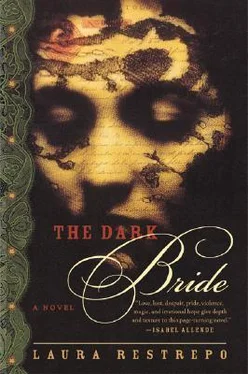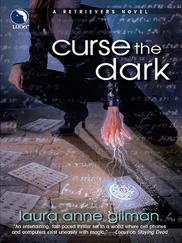I have wanted to understand the passion of the woman who was not called Sayonara in vain and accompany her along the paths of her recurrent farewell. I wanted to know what her problem was, but it seems to be a given that the problem is always something else, and that behind the motives that drive someone, another motive often lurks. Life is debated in deep waters while words and explanations slide across the smooth surface.
That’s fine, I think. That’s how it should be. That the memory of Sayonara stays where it should be, in the interlinings of supposition and expectation, half veiled and half revealed by the recollections that others have of her. Or of them. Of those three: Amanda, the Girl, and Sayonara. And as for me, it is enough to reach the end of her story delicately. With just enough coherence and without forcing things, without excessive literary adjustments and without trying to clarify the mystery of her trinity. I should allow her stele to extend among the shadows, plural and slight, refraining from calcifying it by exposing it to the light of day.
Now I want to retrace the steps she took among her people on that decisive and rain-swept day, the day of her return to Tora, when they saw her arrive just as she had left, her hair dripping water, wearing the black skirt with the slit up the side and the Chinese blouse with its tight row of buttons and its domesticated dragon.
“Just as she had arrived, yes, but with the difference that she now breathed more deeply,” Todos los Santos corrects me, “but that was noticed only by those of us who loved her. What I mean is that there was something new about her, a gift she had acquired during her absence, which was maturity. A splendid maturity, without hurry or stridency, sweet and serene like the morning star.”
“Sweet and serene?!” laughs Olga. “You compare a Malaysian tiger like her to the morning star?”
They tell me that the return trip was hard and slow, and full of surprises.
“Hard and slow and full of surprises, sí señor, just like life,” says Olguita philosophically, and she bursts out laughing again.
“Hush, Olga,” scolds Todos los Santos, “stop repeating things, you sound like an echo.”
Sayonara led the burro by its halter, with Fideo draped across the small wooden pallet on the animal’s back like a sack. The sick woman, feeling uncomfortable and annoyed in her burning and ulcerated skin, was in a foul mood, and she attacked with such surliness any attempt to help her that on more than one occasion Sayonara had to threaten to abandon her for some passing Samaritan to deal with her excesses. But the threatening didn’t do any good. Fideo calmed down only when she slept, overcome by the numbness and swelling of her appendages, but she became herself once again with every bump along the way to shout to the heavens, with a pathos that to Sayonara seemed out of place:
“Ay, don Enrique, take me with you!” she howled. “Have mercy on me and take me to where you are, because down here they’re all a bunch of bastards!”
“Ungrateful woman,” responded Sayonara.
“Anyone who thinks that on top of all this I have to be thankful can go fuck his mother! Thank you, God, for these bubas as big as chicken eggs? Thank you, Virgin Mary, for these stinking pustules? Who the hell do you want me to thank?”
“At least that man who came by to offer you some water. You didn’t have to curse him; he was only trying to help.”
“To help! The miscreant… he’s probably the brother, or the cousin, or at least the friend of the bastard who gave me this plague.”
From a distance, before the first roofs appeared, Sayonara spied the eleven blue flames from the refinery’s smokestacks, rising against the drizzle above the tops of the tallest trees, and her eyes, recognizing her home, grew watery as she watched the slowly rising columns of thick smoke. Then she looked again.
“What strange columns of smoke,” she commented.
“What’s strange about them?” growled Fideo.
“They rise strangely into the air.”
It seemed as if they stopped midway up to expand toward the sides, swelling into fat clouds, puffing up oddly to create an additional cap on a sky that was already charged with electricity, thereby rarefying the air and somehow altering the look of the familiar, turning it into a simulation of its former self.
“Things have changed down there, Fideo,” Sayonara warned her. “We are not returning to the same place we left.”
“Things always change, don’t think you’re so clever.”
In reality the signs of strangeness had been visible, sporadically, for a couple of hours now, since the travelers came across the first hut. At the edge of the road, just there, covered with sticks and pieces of plastic, with three sheets of tin for walls and a burlap bag as a front curtain, barely a yard high, so that a person fit inside only lying down. Next to the hut, sitting on a rock, waiting, was a very poor woman with her breasts exposed and her lips painted red. Fideo had a fever, and to protect her from the drizzling rain, which had soaked her and was making her shiver, Sayonara had the idea of asking the woman’s permission to let the invalid rest under the makeshift roof until the rain stopped.
“Get out of here!” shouted the painted-mouthed woman, throwing a rock at them. “Clients are already scarce enough! Get out of here, you infected women, before you scare away the few clients left!”
A little further along, the road emptied onto a highway, now asphalt, and Sayonara, Fideo, and the burro started walking along its edge, hugging the cliffs so that they wouldn’t be struck along a curve by one of the vehicles that nearly scraped them as they sped past, and so that they wouldn’t die under the wheels of the trucks filled with soldiers and weapons.
“Pretty, this asphalt,” said Fideo, suddenly in a peaceful mood. “It shines very nicely.”
“It reflects the lights from the cars, because it’s wet,” said Sayonara, but it would have been better if she had remained silent, because Fideo, irascible again, answered her with pedantry.
And then, again, familiar places glistened with hints of unreality, when by the edge of the highway, one after another and at intervals, enormous advertising walls appeared, on which the company, through slogans, tried to motivate the workers, or the male population in general, to leave behind the risks of a roaming life and illicit love to form a family like all other law-abiding families. A man without a home, urged the wisdom in the signs, is like a saint without a robe, like a bird without a nest, like a nest without a bird, like a house without a roof, like a roof without a house, like a head without a hat or vice versa: all things abandoned, undesirable, or incomplete.
“Listen to that, the Troco is insisting on officiating over wholesale marriage,” said Sayonara, and she hadn’t finished speaking before they spied in the undergrowth, just beneath one of the walls, another hut similar to the previous one but a little more solid and decorated all around with a colorful synthetic garland. This time the owner was a young fat woman, squeezed into a pair of tight slacks, and as they hurried on so as not to hinder her, Sayonara and Fideo saw a driver and his helper climb down from a sixteen-wheel Pegasus that stopped in front. Next, they saw the driver and the fat woman enter the hut and could discern, through the cracks between the sticks, what they were doing in there while the helper waited his turn outside, trimming his fingernails with a nail clipper.
“The other woman handles the pedestrians and this one, the motorized clients,” noted Fideo.
Mingling in the sad air, odd bits of Victrola music came floating through the rain, making Sayonara quicken her pace and preventing her from stopping until she reached the lookout point from which one can view the fair, serpentine Magdalena, whose waters at that instant were being drowned by the last rays of the sun. She could contemplate the city of Tora in its entirety, motionless against the great current but over-flowing on the other three sides as if it had decided to grow against all human reasoning and against the will of God. On the far side of the river the downpour was stronger and the view into the distance merged into washed grays, as if another country lay in that direction.
Читать дальше












